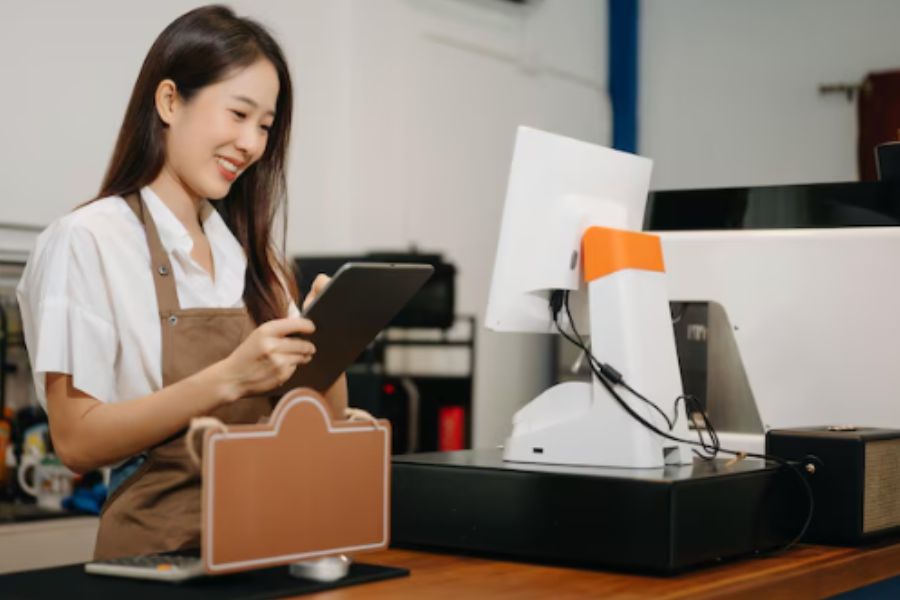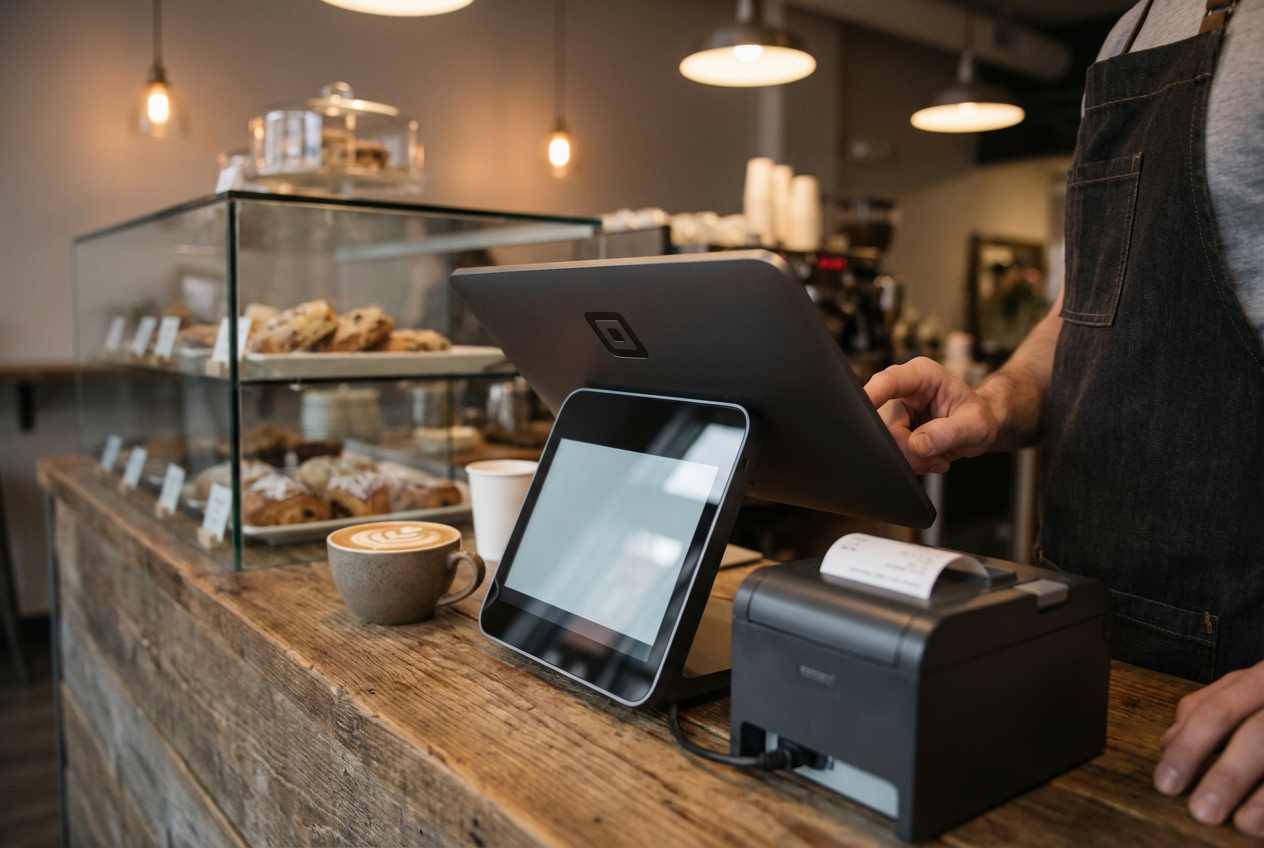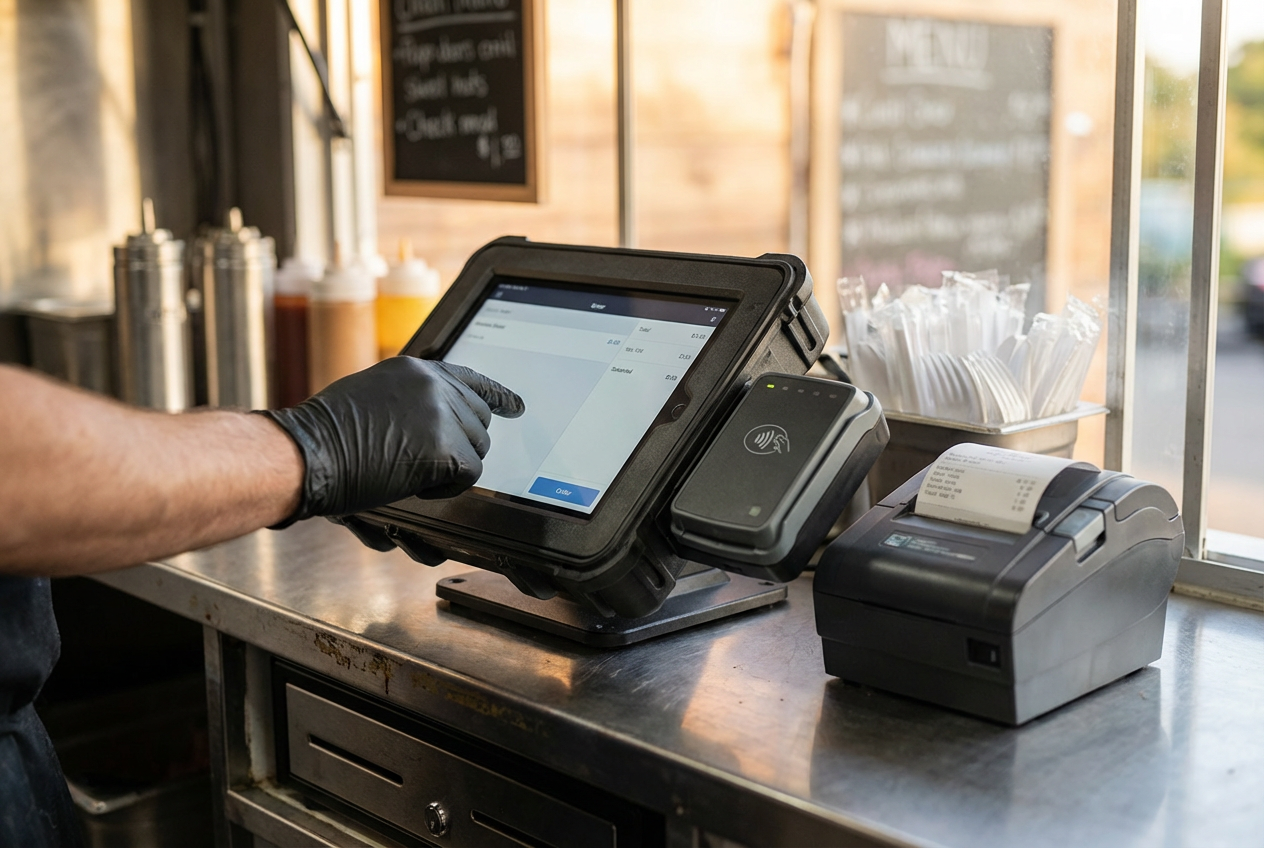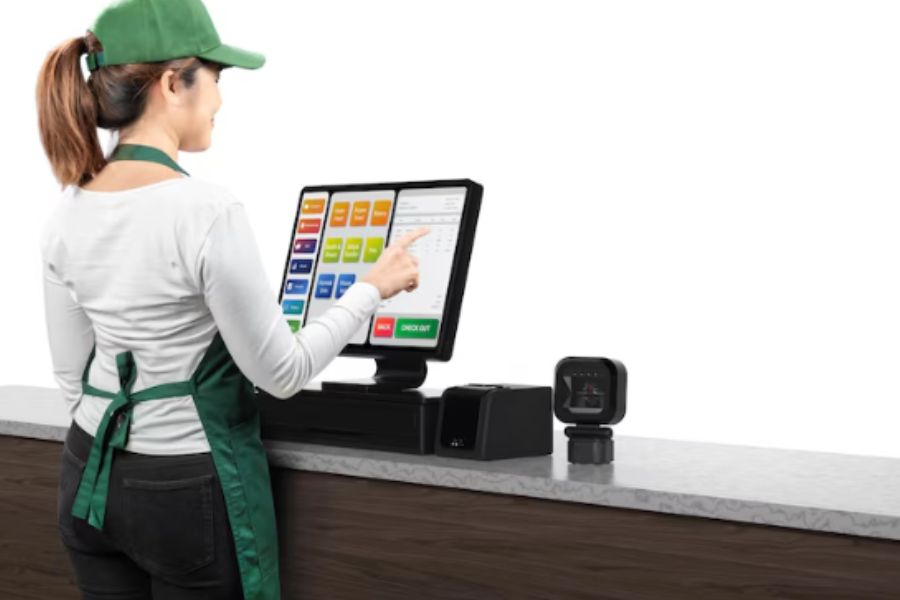Managing multiple store locations demands a specialized POS system with robust capabilities. The best POS system for multiple stores offers centralized management with a unified dashboard view, real-time inventory synchronization across all locations, and comprehensive sales reporting that combines or separates store performance as needed. Effective multi-store POS systems also leverage customer data to enhance relationships, integrate seamlessly with your existing business tools, and scale alongside your growth.
This guide examines the essential features, technical requirements, and security considerations to help you select a POS system that addresses your multi-location business challenges efficiently and supports your expansion plans.
Highlights:
- A solid multi-store POS gives you one control center for inventory, sales, and customer data, keeping every location aligned and running smoothly.
- Your POS should match how your business operates – scaling easily, protecting your data, and supporting smart decisions with real-time insights.
Must-Have Features Of The Best POS System For Multiple Stores
Look for these essential features when selecting a POS system for multiple store locations:
- Centralized Dashboard Management
A unified dashboard simplifies multi-store oversight. Access sales data, inventory levels, and customer information from one central interface. Add products and update inventory across locations without workflow disruptions. This ensures consistent operations regardless of where customers make purchases.
- Real-Time Inventory Synchronization
Multi-store POS systems track sales, stock levels, reorder points, and supplier requirements automatically. Set up automated replenishment rules and transfer inventory between locations to optimize stock distribution. This prevents costly stockouts and overstocking issues across your business network.
- Comprehensive Sales Reporting
Access live reporting from all locations anytime, anywhere. Track metrics and gain insights into customer behaviors and product trends to boost sales. Export and share actionable data on top-selling products, purchasing patterns, and staff performance across your organization.
- Data-Driven Customer Management
Track purchase patterns to enhance customer retention and loyalty. Create and manage customer profiles across all channels. Implement unified loyalty programs that include reward points, store credits, and gift cards, which work seamlessly across all purchasing channels.
- Third-Party Integration Capabilities
Quality POS software connects with ERP, CRM, accounting systems, and marketplace platforms. This streamlines operations and automates workflows. Integrate with eCommerce platforms like Magento or Shopify, marketplaces like Amazon, and payment providers such as PayPal and Stripe to consolidate all sales data in one accessible location.
- Business Scalability Support
Select a retail POS system that grows with your business. Add products, accounts, and devices without incurring additional costs. Store-specific customization options allow for operational expansion without requiring investment in new POS infrastructure.
Finding The Best POS System for Business with Multiple Stores
We’ve listed below the top considerations and strategies to choose the best POS system for multiple stores.
►►► Optimal solution set for businesses: Multi store POS, Next-gen POS, Inventory Management Software (MSI), Self Service, Automation, Backorders

What Does Your Multi-Store Business Need?
Before selecting a POS system, assess your specific business requirements.
- Consider how your store locations connect and communicate—do they need constant internet access or the capability to operate offline?
- Evaluate your transaction volume across all locations to ensure the system handles peak periods without slowdowns. Examine your inventory management needs, including how complex your stock tracking must be and if you require features like automated transfers between locations.
- Review your staff management situation: determine how many employees access the system, what permission levels they require, and how scheduling and performance tracking should be implemented.
These factors directly impact which POS solution serves your multi-location business effectively. Documenting these requirements helps narrow your options and focus on systems designed specifically for businesses with your operational structure.
Key Considerations When Choosing a POS System
When selecting a POS system for multiple locations, hardware compatibility stands as a primary concern. Determine if the system works with your existing equipment or requires new devices, like tablets, terminals, scanners, and card readers, that all need to function together seamlessly.
Next, examine how the POS integrates with your current business tools, such as accounting software, eCommerce platforms, and payment processors, to avoid disruptive workflow changes.
Cost factors require careful analysis beyond the advertised price. Calculate total setup expenses, including installation, data migration, and initial configuration. Account for training costs to ensure staff across all locations can operate the system effectively.
Review the pricing structure thoroughly. Some providers charge per terminal, others per location, and many have tiered subscription plans. Look for hidden costs, such as payment processing fees, customer support charges, and software update expenses, that can impact your long-term budget.
Must-Have Technical Capabilities
Consider these technical capabilities to ensure smooth operations, consistent customer experiences, and accurate business intelligence across your entire retail network.
- A reliable multi-store POS system requires robust offline functionality that continues processing transactions during internet outages, then automatically syncs data when connectivity is restored. This prevents revenue loss and customer frustration during network issues.
- The best POS system for multiple stores should facilitate cross-store inventory transfers with real-time updates, allowing staff to locate items at other locations and arrange transfers to meet customer needs.
- Consider reporting flexibility—look for systems that generate both consolidated reports showing overall business performance and individual store analytics for location-specific insights.
- Your POS should enable seamless customer data sharing across all stores, creating unified profiles that track purchase history, preferences, and loyalty program status regardless of which location a customer visits.
Top Security Features to Look For
Security should be a top priority when selecting a multi-store POS system. These security measures safeguard your operations, protect customer trust, and reduce financial liability risks that could affect multiple store locations simultaneously.
- Implement granular user permission levels that limit access based on employee roles. For example, managers need different privileges from cashiers. This prevents unauthorized actions and protects sensitive operations.
- Ensure your POS uses strong payment data encryption for all transactions, protecting customer information both during transmission and storage.
- Look for built-in fraud prevention tools that flag suspicious transactions, unusual purchasing patterns, and potentially fraudulent activities across all locations.
- Verify that any system under consideration meets relevant compliance standards, including PCI DSS for payment processing, GDPR for customer data protection, and industry-specific regulations that apply to your business.
ConnectPOS for business with multiple stores
ConnectPOS delivers comprehensive multi-store management through the unified inventory oversight capabilities.
The best POS system for multiple stores tracks stock levels across all locations in real-time, preventing overselling and stockouts that frustrate customers. Its all-store performance management tools consolidate metrics from every location, enabling data-driven decisions based on complete business intelligence rather than fragmented insights.
The platform excels in integrated omnichannel selling, synchronizing inventory between physical stores and online channels automatically. This ensures consistent product availability regardless of where customers shop. ConnectPOS offers customizable workflow automation that adapts to each location’s unique needs, creates store-specific discount structures, checkout processes, and staff permission settings.
Opening new locations becomes streamlined through scalable store replication features that quickly duplicate successful store setups. ConnectPOS generates store-specific advanced insights, highlighting performance metrics, inventory efficiency, and customer trends for each individual location. This combination of unified oversight and location-specific flexibility makes ConnectPOS an ideal solution for growing multi-store businesses.
To Conclude
Selecting the best POS system for multiple stores makes a significant difference in operational efficiency and growth potential. By focusing on essential features like centralized management, real-time inventory synchronization, and comprehensive reporting, you can narrow your options to systems that truly meet your needs.
Consider your specific business requirements, technical capabilities, security features, and budget constraints during your evaluation process. Solutions like ConnectPOS demonstrate how the right system can unify your business operations while still allowing for location-specific customization.
Remember that the best POS investment supports both your current operations and future expansion plans. Take time to thoroughly research, request demonstrations, and speak with other multi-store owners before making your final decision. The perfect POS system streamlines your multi-location management, freeing you to focus on strategic growth rather than administrative complexities.
Contact us for a free demo!
FAQs: Best POS System for Multiple Stores
What’s the complete cost breakdown for implementing a POS system across multiple stores, including hardware and training?
Basic systems start at $100 per month per location. Advanced systems range between $350-700 per month per location. Hardware costs per store: $1,000-3,000. Training: $200-500 per staff session.
What capabilities should I expect from a multi-store POS dashboard when managing daily operations?
Modern POS systems offer unified dashboards to monitor real-time sales, inventory levels, staff performance metrics, and automated reorder points across locations.
How do automated inventory transfers between store locations work in practice?
Good POS systems generate transfer orders, track shipping status, confirm receipts, and update stock levels automatically at both sending and receiving locations.
What options do multi-store POS systems offer for location-specific pricing and promotional campaigns?
Most systems allow store-specific pricing matrices, time-based promotions, regional discounts, and customized loyalty programs per location.
Which specific reports should I review daily, weekly, and monthly for multiple store locations?
Look for store comparison reports, inventory velocity analysis, staff productivity metrics, peak sales period data, and cross-location customer purchase patterns.
How does the best POS system for multiple stores handle different employee roles, permissions, and schedules across locations?
POS systems should manage role-based access, time clock functions, schedule integration, performance tracking, and commission calculations for all locations.
►►► Optimal solution set for businesses: Shopify POS, Magento POS, BigCommerce POS, WooCommerce POS, NetSuite POS, E-Commerce POS




